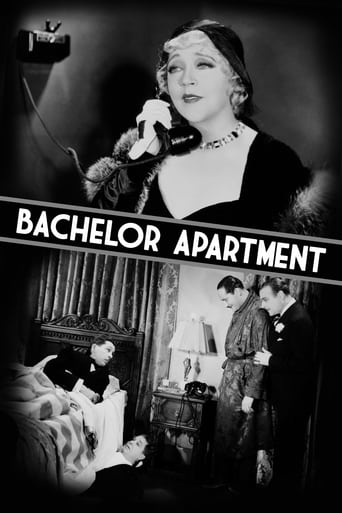mark.waltz
That aging playboy Lowell Sherman has all the women in New York ga-ga with his love-making, breaking up homes and even keeping a closet filled with women's clothes (where one size fits all) for convenience. A misunderstanding between sisters Claudia Dell and Irene Dunne brings Dunne to Sherman's penthouse and within days, Dunne is working as Sherman's executive secretary, creating a lot of office gossip. At first aloof, she bends her high moral standards when a jealous husband (and old pal of Sherman's) accuses him of having an affair with his wife (Madge Murray) who has been trying to seduce Sherman for months. While this certainly creates the right atmosphere of the working girl's life during depression era New York City, it lacks in credibility with Sherman's eternal playboy character, played by him far too often after he was truly a bit long in the tooth. The double-chinned, portly Sherman even directed this (as usual), giving it an egotistical smell that left me shaking my head. Dunne comes off unscathed as she is always likable, but Mae Murray (as the pesky married woman stalking Sherman) is entirely obnoxious. This is still interesting for its pre-code elements if you can stomach watching Sherman constantly ogling the young ladies like some lecherous old fool.
chuck-reilly
Ground-breaking director/actor Lowell Sherman was the main creative force behind 1931's "Bachelor Apartment," but the real star of the film is the up-and-coming Irene Dunne. This was one of her earliest roles in Hollywood and it's readily apparent watching her here that she was destined for greatness. Her easy-going charm and light comedic touch are evident throughout and although the film is quite dated, her performance holds up very well. As a matter of fact, Sherman's bachelor role (Wayne Carter) is perfectly suited for his acting talents and he's certainly Ms. Dunne's equal. The plot is somewhat "racy" for the times; a rotating bevy of available women stroll in an out of Sherman's apartment to his utter bemusement. He's too busy sipping cocktails and counting his assets to take any of them seriously---until a Miss Andrews (Dunne) arrives on the scene. The chemistry between the two is unmistakable and their repartee is well-written and delivered with just the right amount of understated sexual tension. It's the kind of dialogue one doesn't get to hear very often in the usual 1930's movie. Sherman, unfortunately, didn't live long enough to become a household name. He died in 1934 at the age of 49. His last directing assignment was for the Technicolor "Becky Sharp", but he was gone before major production got underway. Irene Dunne, of course, became one of Hollywood's greatest actresses and outlived nearly all of her contemporaries. For fans of the films of the 1930's, "Bachelor Apartment" is worth the viewing time if it ever pops up on TCM or if one wants to rediscover Lowell Sherman. He was a great talent who never really got his due. Like so many from the early bygone days of movie-making, he's largely forgotten now. It's not fair, but that's Hollywood.
ccthemovieman-1
I didn't expect much from this film when I first saw it, not knowing who Lowell Sherman was and figuring it would be extremely dated.I found out the film provided some good laughs, some clever sarcastic dialog, realistic characters and a certain charm at the same time.Sherman might have been a bit too old to be playing the role of playboy but he carried it off, being enjoyable to watch. It was fun seeing such a young Irene Dunne, too, complete with the early '30s short hairstyle. Unlike most of the women pictured in this film, Dunne played her typical high-principled character, reflecting the classy lady she was off screen, too.
David (Handlinghandel)
Another of the movies I would not think of watching but for Irene Dunne, playing anything but swank comedy here. It consists of basically two types of characters. One is ladies in lingerie or revealing gowns. (Dunne wears neither but at one point we see her in her boss's bathrobe.) The other is gentlemen who appear to prefer other gentlemen.One of these is its director and star, Lowell Sherman. He had a solid hand as a director and is likable as a performer. But he's a little hard to buy as a ladies' man. And in one scene, he goes to a friend's apartment, demanding to see who's in the bedroom. Instead of the woman he's looking for, two men are there. They're fully clothed and maybe the audience at the time thought they were sleeping off hangovers. Maybe that's what the script meant, for all I know. But it's not the way they come across in the context of the movie.The print I saw was fuzzy but it's chic and entertaining -- dated but also risqué.
